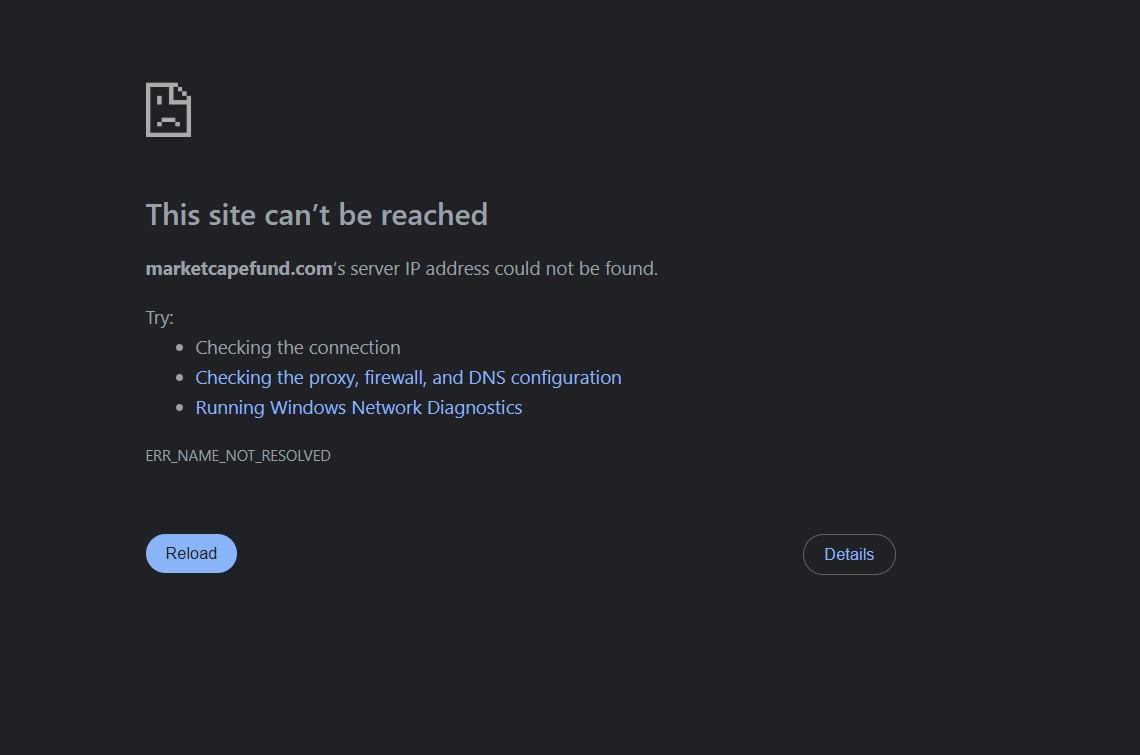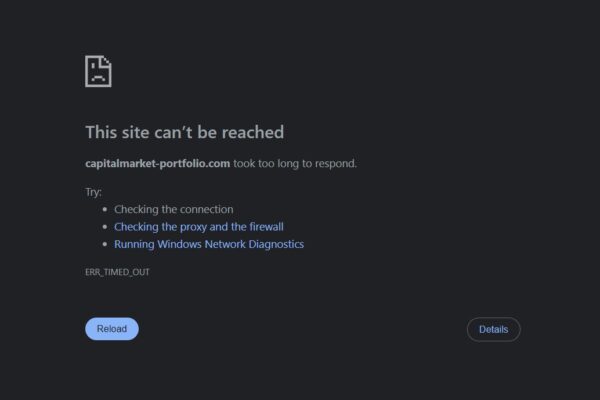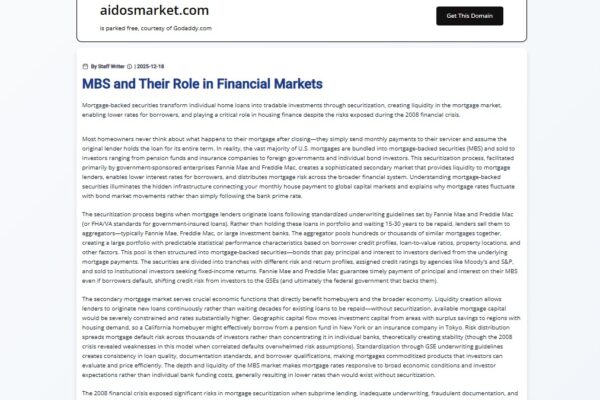MarketCapeFund.com Scam Review -A Cunning Platform
Opening — the shiny promise that doesn’t survive scrutiny
You land on MarketCapeFund.com through a promoted post promising fast crypto returns, AI trading or “institutional strategies made simple.” The site is slick, the marketing confident, and friendly account reps appear ready to onboard you quickly. That polished presentation is exactly what convinces many people to test a small deposit.
This review peels back that surface. It focuses on verifiable signals and repeated operational patterns — domain and trust metrics, regulation and registry issues, user reports about withdrawals, contract language, and the sales funnel used to escalate deposits. Taken together, these concrete indicators form a practical, risk-based picture that anyone considering MarketCapeFund.com should understand before transferring funds.
1) Trust & reputation: low scores and alarm bells
Independent website reputation tools give MarketCapeFund.com a very low trust rating. Those services aggregate domain age, WHOIS transparency, hosting choices, and complaint histories; a low composite score is a useful early warning that merits deeper caution. Multiple review sites and scam-watch pages also list the platform among suspect investment operations, with visitor comments and flagged reports contributing to the negative profile. ScamAdviser+1
2) Regulation & formal warnings — a practical safety check
A core question for any financial service is: which regulator oversees it? Credible providers publish licence numbers and regulator registers you can check. For MarketCapeFund, public checks and several watchdog writeups show an absence of verifiable licences from recognised authorities, and independent reviewers explicitly characterise the operation as lacking legitimate oversight. That absence materially reduces the legal protections available to users. BOREOAK LIMITED+1
3) User reports — the deposit-in / withdrawal-out asymmetry
One of the most actionable empirical tests is how the platform treats money in versus money out. Reported user experiences tied to MarketCapeFund follow a familiar and worrying sequence: deposits are processed quickly; early small withdrawals may be allowed (or simulated) to build confidence; as deposit size grows, withdrawal requests encounter sudden complications — additional verification requests, unexpected “processing” or “release” fees, or long delays. Those patterns are consistently described across multiple complaint boards and user posts. A number of community accounts and consumer complaint trackers record this exact behaviour. scams2avoid.com+1
4) Marketing mechanics — urgency, VIP tiers and psychology
MarketCapeFund’s onboarding flow uses well-tested psychological levers: urgency (limited VIP slots), social proof (testimonials and screenshots), and personalised outreach from account managers. Those tactics are powerful conversion tools — they accelerate deposit behaviour before users have time to verify critical facts. When those tactics are paired with opaque corporate details and poor withdrawal track records, they become an engine for rapid capital accumulation that benefits the operator far more than the client.
5) Transparency — who runs the business?
Companies that manage other people’s money publish a legal entity, corporate registration, physical address, named directors, and clear banking/custodial relationships. MarketCapeFund’s public footprint lacks robust, verifiable corporate identifiers: domain WHOIS is privacy-protected, leadership bios are generic, and claims about partners or custodial arrangements are thin or unprovable. That opacity makes it difficult to pursue accountability or legal remedies if issues arise.
6) On-site “proof” vs independent verification
Internal dashboards, screenshots and curated testimonials are conversion assets — not independent evidence. True verification would include exportable transaction logs, on-chain proofs for crypto flows, named custody banks, or third-party audits. MarketCapeFund primarily displays internal metrics and marketing copy rather than verifiable, auditable records. Where promotional materials are the only “proof,” treat them as marketing, not confirmation.
7) Contractual levers — the small print matters
The real operational controls appear in terms and conditions. Risky platforms often include clauses that allow the operator to freeze accounts, impose retroactive processing fees, or tie bonuses to unrealistic trading volumes. If you read MarketCapeFund’s T&Cs and find broad discretionary language about freezes, fee adjustments, or dispute resolution in distant jurisdictions, those are the mechanisms likely to be used when clients request withdrawals. Always check the fine print closely — it’s where the practical rules live.
8) Technical signals — domain age, hosting and rebrand risk
Technical metadata shows MarketCapeFund’s domain has a short public lifespan and uses privacy protection. Sites with those features are easier for operators to rebrand or abandon if scrutiny rises. When a platform combines short domain age, masked ownership, and low community visibility, its operational resilience is weaker and the risk of sudden disappearance is higher.
9) The classic script — how the pattern often plays out
The empirical sequence reported across many complaint threads looks like this:
-
Attractive ad drives the user to a slick landing page.
-
Fast signup and an immediate human contact from an “account manager.”
-
Small deposits and early, visible gains or demo payouts to build confidence.
-
Upsell to VIP accounts or higher tiers demanding larger deposits.
-
When larger withdrawals are requested, new verification demands, surprise fees, or long delays emerge.
-
Communication degrades and funds become difficult to recover.
If you observe several of these steps when dealing with MarketCapeFund, treat it as a strong operational warning that the platform prioritises intake over reliable payouts.
10) Quick red-flag checklist — a one-page test
Use this checklist to screen MarketCapeFund before risking meaningful capital:
-
Is the legal company name, registration number and physical address published and independently verifiable?
-
Is the platform licensed by a recognized financial regulator (and can you confirm the licence)?
-
Are custodial banks or third-party auditors named and checkable?
-
Do independent users report successful, large withdrawals (not just tiny tests)?
-
Is domain ownership masked or is the domain newly registered?
-
Do the terms allow the operator broad discretion to freeze accounts or impose retroactive fees?
-
Does marketing promise guaranteed or unusually high returns with little risk disclosure?
-
Are testimonials and performance claims corroborated outside the platform with verifiable receipts or transaction hashes?
Multiple “no” answers on that list materially increase the chance of loss.
Practical conclusion — why the cumulative picture matters
Any single concern can sometimes be explained by startup behavior, marketing overreach, or sloppy disclosure. The practical danger arises when several concerns accumulate: low trust ratings, absence of verifiable regulation, masked ownership, repeated user reports of withdrawal friction, and pressure tactics to upscale deposits. MarketCapeFund currently exhibits multiple elements of that risky pattern.
This review is a risk-based analysis — not a legal accusation. Its purpose is to give you concrete, testable indicators so you can protect capital. If the operator cannot produce transparent, independently verifiable evidence — clear company registration, regulator licence, named custodial partners, audited records and a history of timely withdrawals — treat the platform as high-risk.
Report MarketCapeFund.com Scam and Recover Your Funds
If you have lost money to MarketCapeFund.com Scam, it’s important to take action immediately. Report the scam to Jayen-consulting.com, a trusted platform that assists victims in recovering their stolen funds. The sooner you act, the better your chances of reclaiming your money and holding these fraudsters accountable.
Scam brokers like MarketCapeFund.com continue to target unsuspecting investors. Stay informed, avoid unregulated platforms, and report scams to protect yourself and others from financial fraud.
Stay smart. Stay safe.






